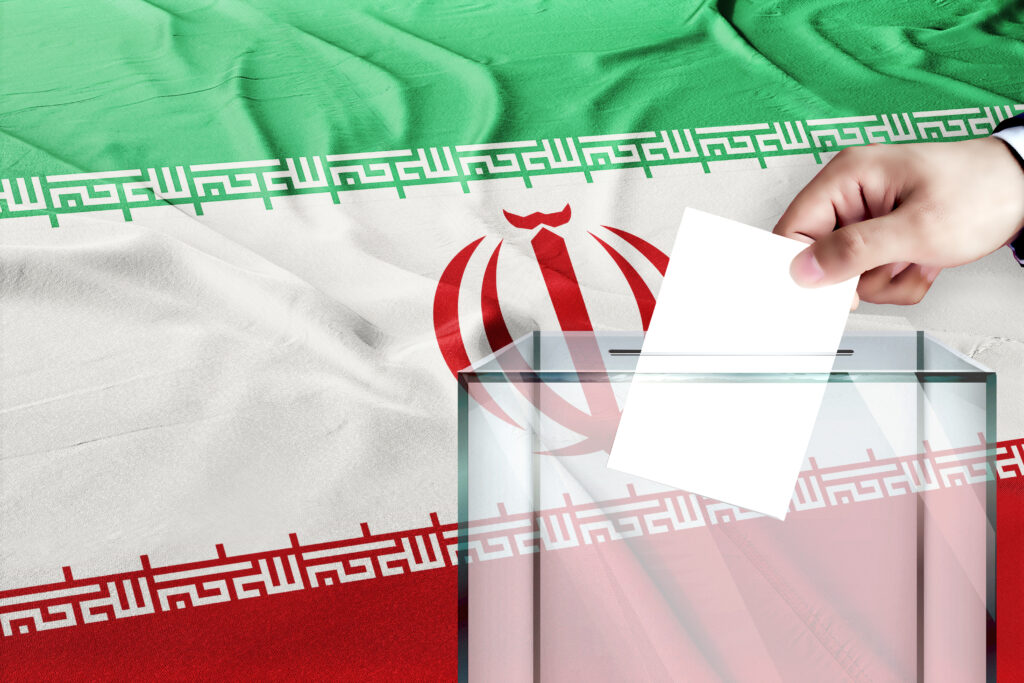Australia/Israel Review
Iran’s ‘election’ seeks to consolidate regime control
Jul 3, 2024 | Behnam Ben Taleblu, Janatan Sayeh

Iran’s Guardian Council, a 12-person body appointed by Supreme Leader Ali Khamenei that approves candidates for office, permitted six out of 80 potential candidates to run in the special presidential election on June 28. While Iranians have increasingly boycotted elections in the Islamic Republic, which are neither free nor fair, Khamenei still uses the contests to narrow the already limited political space and render a more loyal elite.
Presidential elections are being held early due to the death of President Ebrahim Raisi in a helicopter crash in May. Of the six vetted candidates to replace Raisi, one is a cleric; five are veterans of the Islamic Republic’s defining military conflict, the Iran-Iraq War; three have direct ties to the Islamic Revolutionary Guard Corps (IRGC); and only one is a so-called “reformist” who nonetheless casts himself as an agent of stasis and a follower of the Supreme Leader.
Iranian officials often frame electoral contests as a way to showcase legitimacy, increase security, and bolster deterrence. Khamenei has frequently urged his followers to demonstrate popular support for the Islamic Republic by voting and has accused those who boycott the elections of being “foreign conspirators”.
Thus, low turnout refutes any notion that the Islamic Republic’s leaders enjoy the support of the Iranian people. In elections for the Parliament and the Assembly of Experts held earlier this year, regime media announced record low turnout. This has been a consistent trend in the last decade. This pattern is likely to continue, as polling data from the regime-affiliated Iranian Students Polling Agency (ISPA) found that approximately 75% of Iranian viewers did not even watch the presidential debates.
Yet low turnout has not been happening in a vacuum. Nationwide protests in recent years have demanded not merely reform but the downfall of the Islamic Republic. These demonstrations correlate with diminishing voter turnout.
But even when faced with the prospect of low turnout, Khamenei has taken the opportunity to steer the contest to align the Islamic Republic’s policies with his own vision rather than with any expression of voter preferences. Former IRGC commander and now advisor to Khamenei, General Rahim Safavi, said voters must choose a candidate with views aligned with that of the Supreme Leader.

The six Iranian presidential candidates permitted to run
This process also indicates whom the regime perceives as constituting its inner circle. For instance, during this cycle, the Guardian Council disqualified former parliamentary speaker Ali Larijani and former president Mahmoud Ahmadinejad.
While the Iranian president does not control foreign policy, and his domestic power is limited, a regime as unpopular as the Islamic Republic can seldom afford shocks, whatever their source. This is especially the case given that Khamenei will be 89 years old by the time the next president completes his first term. Should Khamenei pass from the scene by then, it remains doubtful that he would want the presidency to be a springboard to greater political prominence or to interfere with the debate over who is to become Iran’s most powerful person.
The circumstances surrounding this election present an opportunity for the United States and its allies. Washington should not pass on the chance to highlight the contrast between the regime and Iranians. The Biden Administration and Congress should signal support for the Iranian people and their desire for representative government and free and fair elections.






